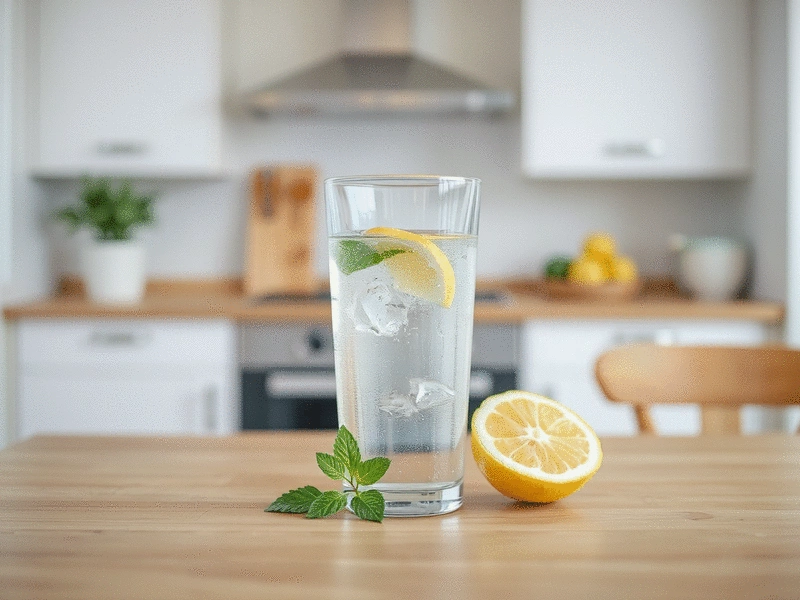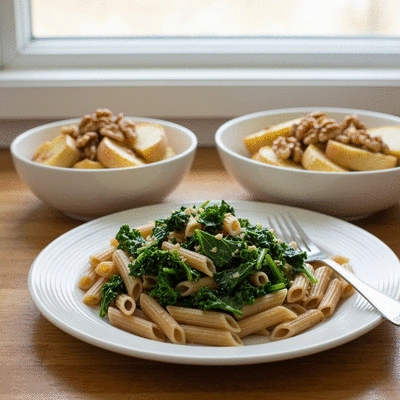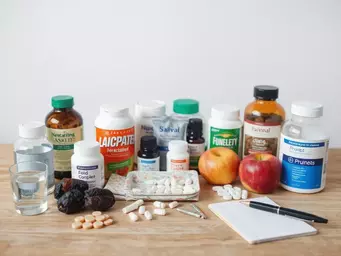Water Intake for Constipation Relief

Did you know that staying well-hydrated could be the key to unlocking better digestive health? Water plays a pivotal role in relieving constipation and enhancing overall gastrointestinal function. Let's explore the vital insights you can gain from understanding this essential relationship.
What You Will Learn
- Water softens stool, making it easier to pass and reducing the risk of constipation.
- A daily intake of about 8 glasses (64 ounces) of water is recommended, but individual needs may vary based on age and activity levels.
- Hydration supports digestion and nutrient absorption, significantly improving gastrointestinal health.
- Combining water intake with a fiber-rich diet enhances digestive regularity and comfort.
- Electrolytes play a crucial role in maintaining hydration and facilitating healthy bowel movements.
The Hydration-Constipation Connection: Key Factors & Recommended Intake
Understanding how water impacts digestion and knowing your daily intake needs are crucial for constipation relief. The visual below highlights these key areas.
Recommended Daily Water Intake
Helpful Fluids
- Prune Juice
- Herbal Teas (peppermint, ginger)
- Clear Soups
Fluids to Avoid
- Excessive Caffeine
- Alcohol
- Sugary Drinks
Understanding the Role of Water in Relieving Constipation
Water is essential for our health, and its role in relieving constipation is significant. When you drink enough water, it helps to soften stool, making it easier to pass. This hydration process promotes healthy bowel movements and can significantly improve your digestive comfort. Have you ever noticed that when you're not drinking enough water, things just don't seem to flow as smoothly? It's a common experience, and one that can be easily addressed!

The mechanisms behind hydration involve the absorption of water in the colon, which breaks down the food you eat. When you're adequately hydrated, your body can effectively manage waste, reducing the chances of constipation. So, let's explore how drinking water can truly make a difference in your digestive health!
How Does Drinking Water Affect Constipation?
Drinking water is a natural remedy for constipation because it aids in the softening of stool. Here’s how hydration works:
- Stool Softening: Adequate water intake keeps the stool moist, making it less hard and easier to pass.
- Bowel Movement Regulation: Proper hydration ensures that your intestines can function optimally, promoting regularity.
- Detoxification: Water helps flush out toxins from your system, further supporting digestive health.
Additionally, dehydration can lead to harder stools, which makes bowel movements painful. By drinking enough water, you put yourself on a path to better digestive health and comfort. Remember, staying hydrated is key!
What is the Recommended Daily Water Intake for Constipation Relief?
The amount of water you need can vary greatly depending on several factors such as your age, activity level, and climate. However, general guidelines suggest aiming for about 8 glasses (64 ounces) of water daily. Research published in the Alimentary Pharmacology and Therapeutics highlights the importance of dietary and fluid interventions for chronic constipation. Here are some specific considerations:
- Age: Older adults may require more water due to decreased thirst perception.
- Activity Level: If you're active or exercise regularly, you might need up to 2-3 additional glasses to stay hydrated.
- Climate: Hot or humid weather can increase your need for fluids, so listen to your body!
Each individual’s hydration needs can differ, so it’s important to pay attention to your body’s signals. If you're feeling thirsty, it’s a sign you need to sip some water!
What Are the Health Benefits of Water for Gastrointestinal Health?
Staying hydrated is not just about preventing constipation; it has numerous benefits for your overall gastrointestinal health. Here are some key health benefits of water:
- Promotes Digestive Function: Water aids in digestion by helping break down food and absorb nutrients.
- Prevents Dehydration: Dehydration can lead to digestive issues, including constipation and discomfort.
- Supports Nutrient Absorption: A well-hydrated body can absorb nutrients more efficiently, contributing to your overall health.
As a gastroenterologist, I've seen firsthand how simple changes—like increasing water intake—can lead to positive improvements in digestive health. For more detailed dietary recommendations, you can consult insights from Healthline's chronic constipation guidelines. Remember, water is your friend when it comes to maintaining a happy gut!
Complementary Strategies to Enhance Hydration's Effectiveness
How Does Fiber Work with Water to Alleviate Constipation?
Fiber and hydration work hand in hand to promote digestive health. While water helps to soften your stool, fiber adds bulk and helps move it through your digestive tract. Here’s how they complement each other:
- Types of Fiber: Soluble fiber (found in oats and fruits) dissolves in water, while insoluble fiber (found in whole grains and vegetables) aids in adding bulk.
- Daily Intake: Aim for at least 25-30 grams of fiber each day along with your water.
- Fruits and Vegetables: Foods like beans, apples, and leafy greens are not only rich in fiber but also have high water content, making them perfect for hydration!
By combining adequate hydration with fiber-rich foods, you'll be fostering an environment in your gut that encourages healthy digestion and regularity. Isn't it amazing how nature provides us with the tools we need for better health?

What Other Fluids Can Help or Hinder Constipation Relief?
While water is crucial, other fluids can also play a role in managing constipation. Here’s a list of beverages that can help or hinder:
- Helpful Fluids:
- Prune juice
- Herbal teas (like peppermint or ginger)
- Clear soups
- Fluids to Avoid:
- Excessive caffeine
- Alcohol
- Sugary drinks
Incorporating the right fluids into your diet can significantly enhance your hydration levels and contribute to relieving constipation. Keep in mind that moderation is key, especially with caffeine and alcohol, as they can lead to dehydration.
How Do Electrolytes Influence Hydration and Digestive Health?
Electrolytes, such as sodium and potassium, play a vital role in maintaining your body’s fluid balance. They help regulate hydration levels, which is essential for proper digestive function. Here’s why electrolytes matter:
- Fluid Balance: Electrolytes help your body retain the right amount of water, supporting hydration.
- Muscle Function: They are critical for muscle contractions, including those in your digestive tract, promoting regular bowel movements.
- Dietary Sources: Foods like bananas, avocados, and leafy greens are excellent sources of necessary electrolytes.
Maintaining a balance of electrolytes is just as important as drinking enough water. When you support your body with both, you’re setting the stage for optimal digestive health!
Pro Tip
To enhance your hydration efforts, consider adding a slice of lemon or cucumber to your water. This not only makes your drink more refreshing but also provides additional vitamins that support digestion. Staying hydrated can be delicious!
Frequently Asked Questions About Hydration and Constipation
- Q: How does water specifically help with constipation?
- A: Water helps by softening the stool, making it easier to pass through the digestive tract. It also aids in regulating bowel movements and supports the body's natural detoxification processes.
- Q: What is the recommended daily water intake for constipation relief?
- A: While individual needs vary, a general recommendation is to aim for about 8 glasses (64 ounces) of water per day. Factors like age, activity level, and climate can influence this amount, potentially requiring more fluid intake.
- Q: Can other fluids besides water help with constipation?
- A: Yes, certain fluids like prune juice, herbal teas (peppermint, ginger), and clear soups can be helpful. However, it's advisable to avoid excessive caffeine, alcohol, and sugary drinks, as they can sometimes lead to dehydration or worsen symptoms.
- Q: Why is combining fiber with water important for constipation relief?
- A: Fiber adds bulk to the stool, while water softens it. Together, they create a well-formed, easy-to-pass stool, promoting regularity and preventing constipation. Aim for 25-30 grams of fiber daily.
- Q: What role do electrolytes play in digestive health and hydration?
- A: Electrolytes like sodium and potassium are crucial for maintaining fluid balance in the body, which is essential for proper hydration. They also support muscle function, including the contractions in the digestive tract that facilitate bowel movements.
Summarizing Key Insights on Hydration and Constipation Relief
Water plays a crucial role in managing constipation. As we've discussed, staying well-hydrated helps soften stool, making bowel movements easier and more regular. But remember, hydration is not just about drinking water. It's a comprehensive approach that includes a balanced diet, fiber intake, and healthy lifestyle habits. The National Center for Biotechnology Information provides further scientific backing on how diet and hydration influence gut health.
To put it simply, adequate hydration supports your digestive system while preventing discomfort. Here are some key takeaways:
- Drink enough water daily to keep your digestive system functioning smoothly.
- Pair hydration with a fiber-rich diet for the best results.
- Consider your unique needs based on factors like age and activity level.
With these insights, you can begin to see how essential water is to your digestive health. I encourage you to integrate these principles into your daily routine for improved comfort and well-being!
Taking Action: Steps for Personalizing Your Hydration Plan
Now that we’ve explored the importance of hydration in alleviating constipation, it’s time to take action! Here are some steps you can follow to create a personalized hydration plan:
- Assess your daily water intake: Keep track of how much water you drink and adjust accordingly.
- Incorporate hydrating foods: Include fruits and vegetables with high water content, like cucumbers, oranges, and watermelon.
- Listen to your body: Pay attention to thirst cues and make drinking water a habit throughout the day.
- Consult with a healthcare provider: If you have specific health concerns, such as kidney issues or hydration needs, reach out for personalized advice.
By actively managing your hydration, you're taking significant steps toward achieving optimal digestive health. Remember, every small change can make a difference, so start today! At Constipation Solutions Co., we’re here to support you on this journey to digestive comfort.
Recap of Key Points
Here is a quick recap of the important points discussed in the article:
- Drinking adequate water helps to soften stool and promotes regular bowel movements.
- Aim for about 8 glasses (64 ounces) of water daily, adjusting based on age, activity level, and climate.
- Combining hydration with a fiber-rich diet enhances digestive health and alleviates constipation.
- Incorporate hydrating foods like fruits and vegetables while avoiding excessive caffeine and alcohol.
- Maintaining electrolyte balance is crucial for optimal hydration and digestive function.
Popular Posts
 Did you know that incorporating daily exercise can dramatically improve your digestive health? Regul
Did you know that incorporating daily exercise can dramatically improve your digestive health? Regul
 Did you know that staying hydrated can significantly improve your digestive health? Understanding th
Did you know that staying hydrated can significantly improve your digestive health? Understanding th
 Understanding your financial options when it comes to constipation treatments can empower you to mak
Understanding your financial options when it comes to constipation treatments can empower you to mak
 Struggling with constipation can be frustrating, but you don’t have to face it alone. Pelvic floor
Struggling with constipation can be frustrating, but you don’t have to face it alone. Pelvic floor
